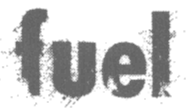

Pit Stop - A Look at Sunburn
From Guitar One Magazine - October, 1998
by John Stix
Guitar One: Tell me about "Shimmer." It seems like a good example of how a great song can be boiled down to just a voice and a guitar.
Carl: Actually, the first time I performed that song was in Nashville when it was written. It was strictly an acoustic version. Most of the songs we've got translate to acoustic and down to that kind of frame. Like Bruce Springsteen, he put out that "Nebraska" album, and it still holds up. I've seen him do "Thunder Road" solo, and it just kills you. He doesn't have to have a band at all, just him and maybe a harmonica and his voice, and it's completely solid. I use a lot of open strings that ring through the chord; I think it's because I write a lot on acoustic. If you're working with acoustic, you want it to sound big.
-------------
Guitar One: Carl, is it intentional that you play a Les Paul and Brett plays a Tele?
Brett: Yeah, we thought it would be good for us to break up the tones like that.
Carl: Actually, in recording, we did a lot of Tele stuff. Obviously, the Les Paul has got the big, warm, fat sound, and the Tele has got the little cut that gets through. So you get differentiation of tone from the instrument.
Brett: Carl has played Les Pauls for quite a few years, but I used to play SGs. Our sounds were really similar there, so we thought we might break it up a little bit by me switching to a Tele. It's a '78.
Carl: My Les Paul is a '94. I had a Paul Reed Smith that was stolen, and I had to buy this one as a backup. I ended up gravitating towards it over a 1980 Les Paul that is signed by Les Paul. I got that off some kid in Indianapolis coming out of a pawn shop then got it signed by Les Paul.
-------------
Guitar One: What did you use to record "Sunburn"?
Carl: I used that Les Paul. I've got a Tom Andersen Grand Am that I have had for quite a few years. We used Brett's Tele and some other Teles.
Brett: The SGs as well.
-------------
Guitar One: Who comes up with the guitar parts?
Brett: We collaborate at times, but Carl does a lot.
Carl: I hear a song complete. I hear this whole complete thing. I hear this melody going on. Brett always adds some great spice though. I'll have this chord progression, and Brett will do this little thing, and I'll go, "That was cool." He gets in there like that. Obviously, not every song is the same.
Brett: Whenever we record, we coach each other quite a bit. If he is doing a guitar solo, I'll say, "That was great, but can you do this thing here?" He'll pick up on it.
Carl: For "Sunburn," the last part where I'm just doing octave stuff, that was Brett in the control going, "I like that, and this is cool." It helps.
-------------
Guitar One: Ths one song that seems to capture the band as a whole is "Untitled."
Brett: That's one of my favorites, too.
Carl: I agree, because it's got a chorus that goes to an almost major-sound thing. It planes out to bigness in the chorus, and it's got a lot of melody, but at the same time the verses are very aggressive.
-------------
Guitar One: The solo is laid back in the breakdown. You're not rushing. You're breathing, and it feels right.
Carl: Right, like David Gilmour, where less is more. You hear David play sometimes, you can hear how long he went without doing anything. Then he will come up with this beautiful three-note phrase. It's perfect. Like you said, it just felt right. When I was messing around with that, it just felt like that's what it needed, something laid back to fit the mood of what was going on in that passage.
Brett: It's kind of like taking someone and putting them right on the edge of that cliff. They are waiting on it, and you finally push them over.
-------------
Guitar One: How was working with a name producer like Steve Haigler (the Pixies, Quicksand)?
Carl: He was very patient with us because it was our first time in. We had always done it ourselves. It was nice to have somebody who had a lot more insight, a lot more years of experience of knowing how to get this sound and how to approach certain situations. He was very good for that.
Brett: Before that, we didn't really know how the machine worked. We had ideas about it.
Carl: We had never been in a big studio. We'd always done it just in bars and clubs. Just trying to beat it out as quickly as we could.